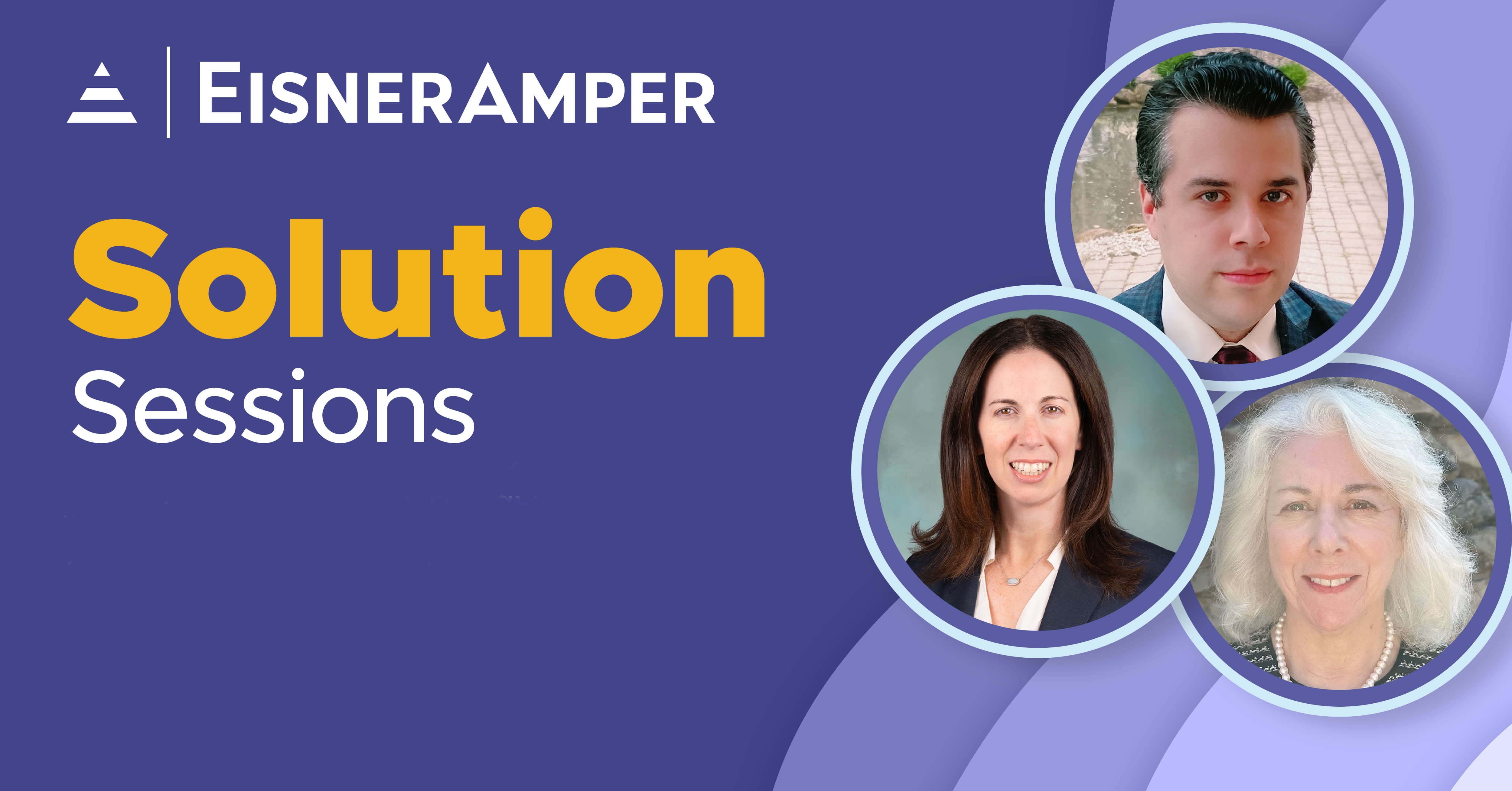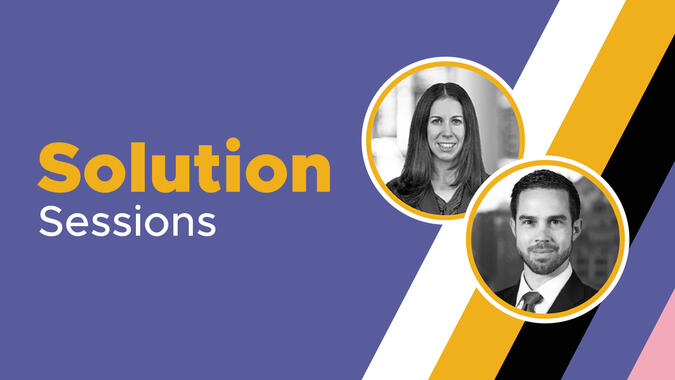
Environmental, Social and Governance Operational and Legal Considerations
- Published
- Oct 15, 2021
- Share
ESG, an acronym for environmental, social and governance, has been a prominent topic the last few years. Last month, EisnerAmper and law firm Fox Rothschild co-hosted a webinar to discuss various ESG operational and legal considerations.
Panelists included Lisë Stewart, leader, EisnerAmper’s ESG Services and also Partner-in-Charge of EisnerAmper’s Center for Individual and Organizational Performance (CIOP) and the Center for Family Business Excellence Group; Charles Waring, national leader, ESG Reporting, EisnerAmper and also director, assurance and technology control services; David Colvin, partner, Fox Rothschild; and Pamela Grinter, partner, Fox Rothschild.
The Case for ESG: Why Now?
ESG is a way of judging a company by factors other than financial performance to identify and uncover material business risks and opportunities. Companies seeking to employ an ESG strategy are asking what their ESG risks are and what, if anything, they are doing to address these risks. These questions can also provide valuable insight into the company’s value proposition.
ESG builds on the concept of corporate social responsibility (CSR) in trying to make initiatives both measurable and reportable. The ESG trend is currently a hot topic for several reasons, which include:
- Research shows ESG-focused companies tend to be less risky investments and often are more successful;
- Stakeholders are seeking alignment with their personal values and are increasingly asking questions; and
- David Colvin cited surveys demonstrating that consumers would increasingly be willing to change their spending habits to change their environmental impact and even go as far as to pay a premium on goods and services from an environmentally-friendly company.
Key Insights and Dates
Some key insights and upcoming requirements noted in the panel included:
- By 2025, corporate boards listed on NASDAQ and with more than five board members will be required to have diverse boards (i.e., at least one female and one individual in an under-represented group).
- Mental health is getting more attention and is becoming a more important factor for attracting and retaining talent.
- In March 2021, the SEC formed the Climate and ESG Enforcement Task Force to look at companies’ public filings to identify any material misstatements or gaps in disclosure; enforcement actions are underway.
- By year-end 2021, expect the SEC to announce new disclosure rules related to climate.
ESG Demand Drivers and Strategy
In private companies, one of the largest groups pushing for ESG strategy adoption are their investors, or their source of capital. Following the investors is the younger generation sitting on company leadership teams. The speakers also listed boards as another major driver, especially at newer publicly traded companies where there is increasing demand to implement disclosures and reporting mechanisms that allow for the monitoring of a company’s ESG policy.
In regard to implementation strategies, Lisë’s first suggestion is to analyze your company’s existing successes and build upon them. As ESG framework adoption is a hefty undertaking, she also advised not to take on too much too fast and once you have a good program in place, keep it in place.
Social and Governance Considerations
There’s more of a public understanding of the “E” in ESG, but what about the “S” and “G”? The social pillar focuses on employees as key stakeholders in the ESG process. Employees need to be able to advise on the impact on ESG in their everyday work. Employees have invaluable insight into the human capital component of a company and accepting their insight is imperative to keep workers both happy and healthy. Two key focus areas of this are health and safety, and labor management.
The governance aspect focuses on the importance of the board’s oversight in the ESG materiality analysis. The board needs to work hand-in-hand with management in assessing risk and maximizing long-term value for the company. The board should be involved from the beginning of the process including the determination of integrating risks, maximizing execution and monitoring performance all into the long-term ESG strategy.
The board should also evaluate their own diversity and executive pay, and whether they are reasonable and defensible. It should also examine accounting controls and corporate behavior.
Benchmarking -- Challenges and Opportunities
There are challenges and opportunities surrounding ESG benchmarking and reporting. It is often difficult for companies to capture and report on the efforts they are undertaking as there is not a set of uniform required standards. Frameworks for ESG reporting (including the Sustainability Accounting Standards Board, the Global Reporting Initiative, and the Carbon Disclosure Project to name a few) have large variety in their focus and reporting so there isn’t one set that is preferable to another. Companies should evaluate which ones are the most applicable to their business.
What Doesn’t Work When Implementing an ESG Strategy
An ESG strategy will often fail or backfire when a company isn’t doing what it says it is doing. Companies run this risk when they are under pressure to keep up with their competition and appease stakeholders that are seeking progress in the company’s ESG strategy. One of the greatest examples of this is greenwashing, or making claims about ESG that are false, misleading, or incomplete. This can damage the reputation of a company both internally and externally, often leading to potential litigation in the form of consumer claims, investor claims or government regulatory action.
Conclusion
The speakers agreed it is only a matter of time before companies will need to consider an ESG strategy due to rising demands and pressure from boards, competitors and investors. The ability for organizations to point and say are they environmentally or socially conscious without having the data to support the claim is becoming slimmer by the month. As the old saying goes “the proof is in the pudding,” and companies serious about implementing ESG policies and frameworks will need the evidence.
To listen to the webcast, click here.
What's on Your Mind?
Start a conversation with Jennifer
Receive the latest business insights, analysis, and perspectives from EisnerAmper professionals.











